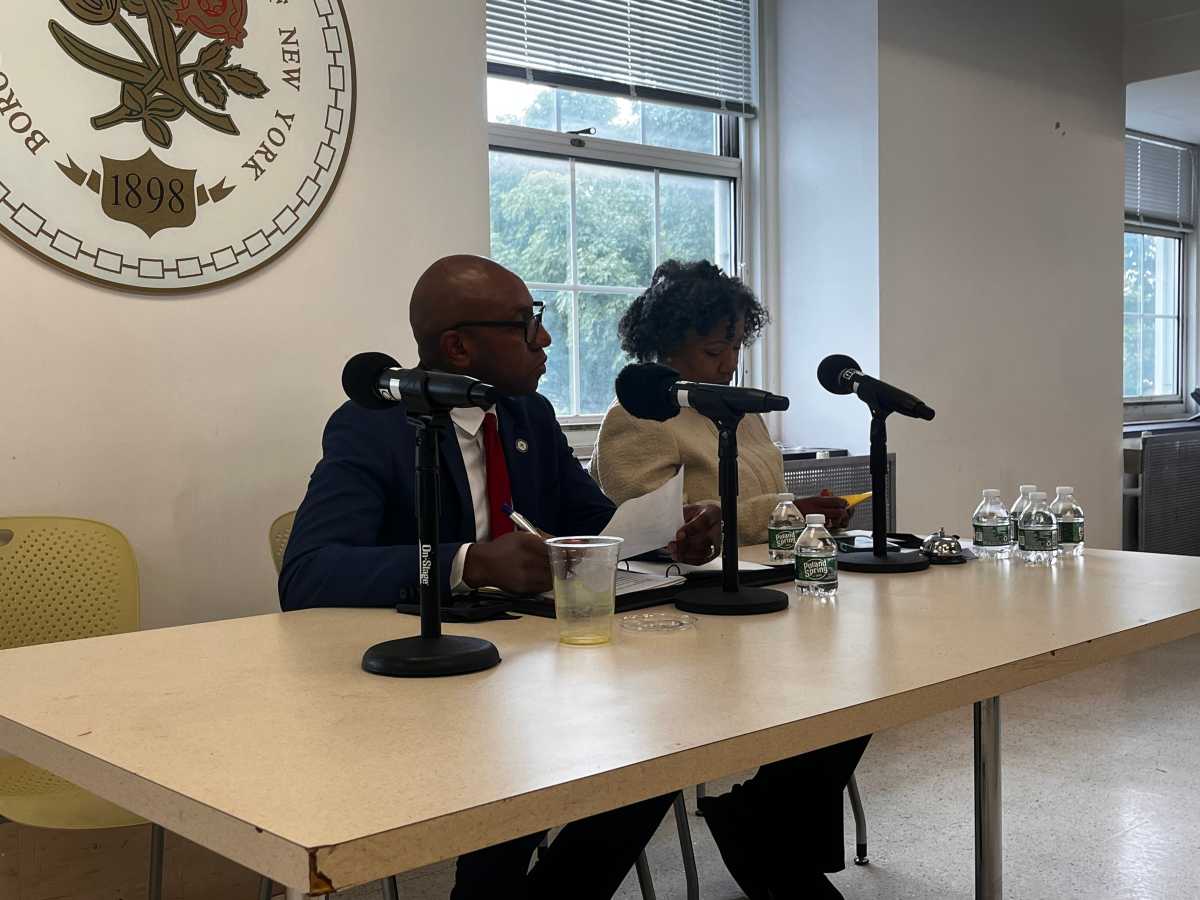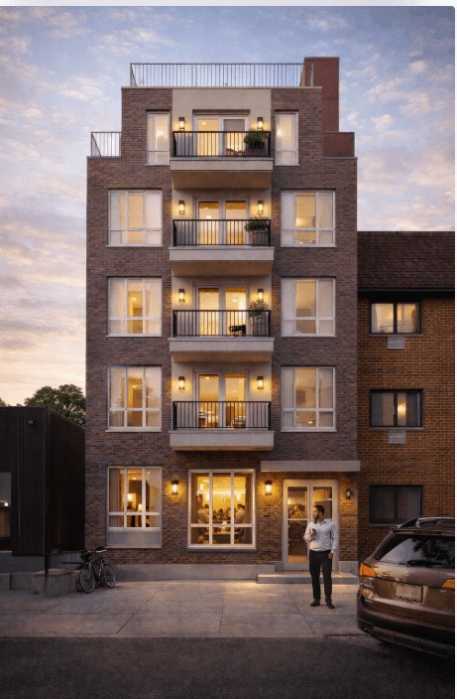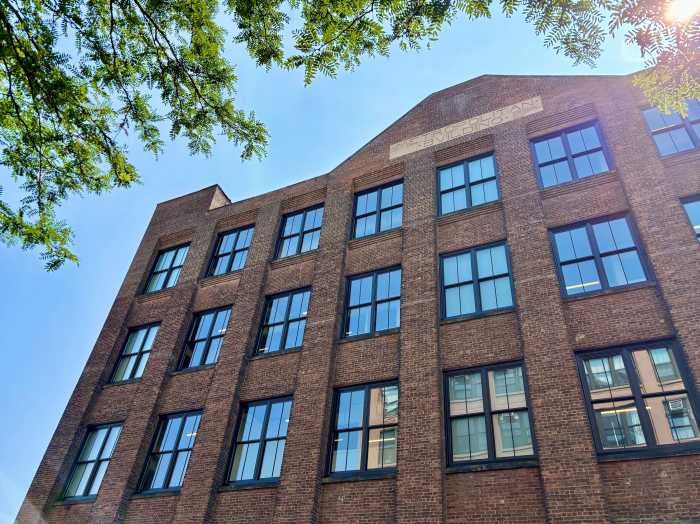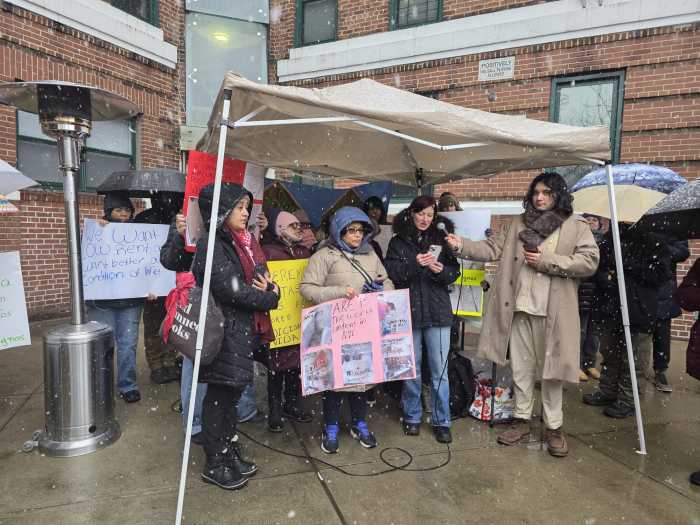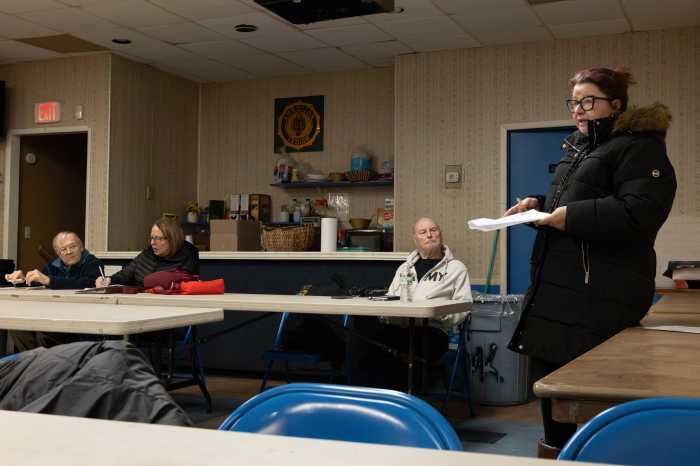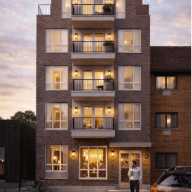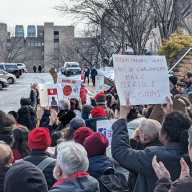Dozens of residents testified in person and on Zoom for a City of Yes for Housing hearing chaired by Queens Borough President Donovan Richards on Thursday, Aug. 8. Residents headed to the second floor of Queens Borough Hall in Kew Gardens to voice their varying opinions on the Department of City Planning (DCP) led rezoning proposal.
The meeting started with a brief presentation by DCP planner Veronica Brown, who detailed key parts of the proposal. The proposal encompasses a vast rezoning plan aiming to add a little more housing in every neighborhood. Brown covered topics encompassing modified garage living spaces, allowing apartments to be built on top of ground-floor commercial buildings, and the removal of parking mandates for new housing developments. In April, the DCP drafted an annotated zoning text of the proposal and released an illustrated guide of its major components.
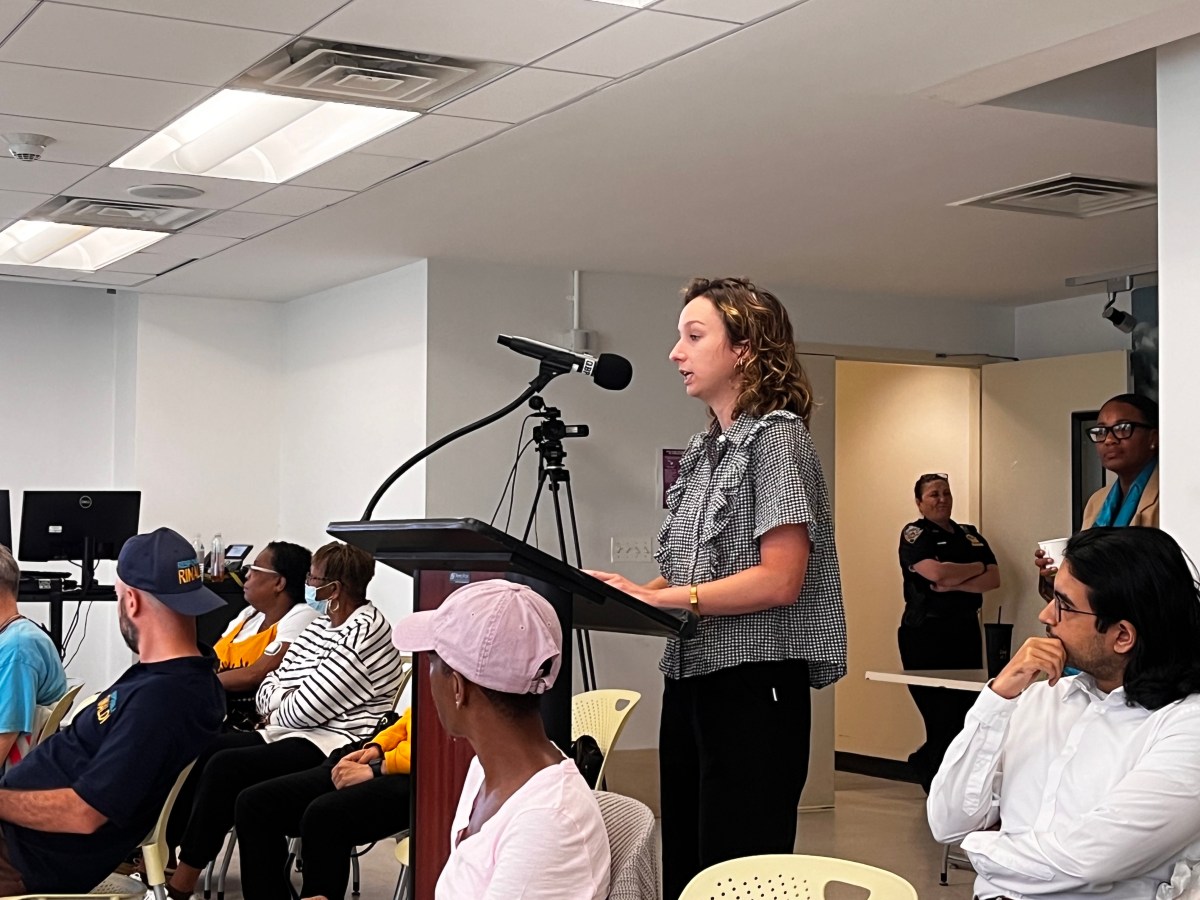
Following Brown’s presentation, Richards had an array of questions, including an inquiry on whether homeowners who are currently renting out their basements would incur fines if their basements were not brought up to compliance if the proposal is legalized.
Brown responded that the legalizing of basement units or other Accessory Dwelling Units (ADUs) would not mean that homeowners with pre-existing basement units would be penalized or incur fines.
“I don’t think this creates new incentives for the [Department of Buildings] to enforce existing rules. It’s possible that a homeowner who has an informal apartment today would continue to violate building codes or other relevant codes,” Brown said. “People who might have those [basement] homes and want to legalize them know how to do so on a timeline that’s realistic and prioritizing the safety of the occupants, but also makes sure that we are not unfairly punishing people who are trying to get their apartments legalized.”
Richards also voiced infrastructure concerns about the impact the legalization of ADUs and modified garage living spaces could have on the city sewer system. “You have parts of the borough like Rosedale and parts of East Elmhurst who may not be coastal communities, but you may be really causing more of a flooding issue if we don’t address the infrastructure challenge we have,” he said. Brown responded, saying a full environmental impact statement showed no significant impact on the sewers due to the incremental nature of housing growth.
Following Richards’ questions, local elected officials, including Council Members Joann Ariola, Robert Holden and Vickie Paladino, voiced various concerns related to the infrastructure of ADUs in flood-prone neighborhoods and the lack of required parking spaces for new housing developments.
“The Rockaway peninsula is already vastly overcrowded and in a flood zone. The infrastructure is already struggling under the weight of the current population. Pushing potentially thousands of new people into an area for accessory dwelling units or newly zoned high-rise residential units would guarantee the floundering infrastructure collapsing outright,” Ariola said. She added that she was firmly against the proposal, saying that the plan takes away the rights of the city council and community boards to vote and discuss the proposals.
Holden, who presides over the neighborhoods of Maspeth, Middle Village, Glendale and Rego Park, called the proposal a “slap in the face for Queens communities.” Similarly to Ariola, Holden voiced concerns about the removal of the power of council members and other elected officials to negotiate zoning. “We are elected to represent our constituents. The plan gives developers a chance to upzone our city. There’s no real commitment to improving our infrastructure, including sewer systems, electrical grids, parking, schools and emergency services,” he said.
Meanwhile, Paladino voiced concerns about the lack of parking mandates for new apartment buildings outlined in the proposal. “The person who represented the city said that when they build a new building its not necessary to put in parking. Well, that’s a fallacy. For every new building that goes up a certain amount of parking must be allowed,” she said.
Residents voice Concerns
Many community members voiced concerns about the potential impact on single-family zoned neighborhoods.
Paul DiBenedetto, chair of Community Board 11, said he was concerned that the proposal could dismantle low-density zoning in various neighborhoods. “The [transit-oriented development] zone would take every corner on my block and it would have a multifamily apartment building. Why can’t they do this without attacking our eastern Queens neighborhoods,” he said. Transit-oriented developments are outlined as areas where developers can construct larger apartment buildings within half a mile of transit, such as the subway or LIRR stations.
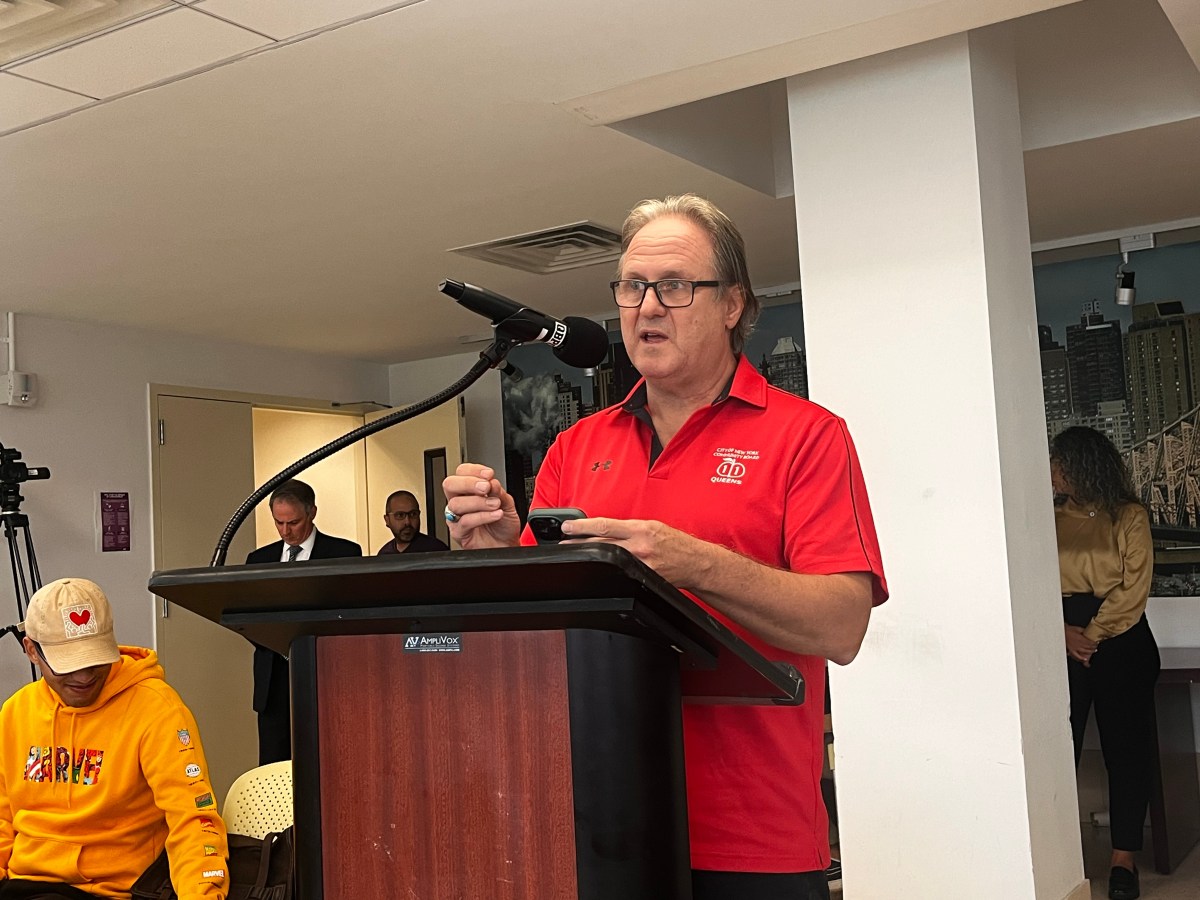
“All of us are totally against the City of Yes. We are against one and two-family home communities being wiped out. We choose these areas for a reason,” said Alicia Spears, a Cambria Heights homeowner. In May, Spears and her cousin organized a packed town hall meeting rallying against the City of Yes for Housing Opportunity proposal.
“People do not belong in garages. They do not belong in backyards; they belong in homes. The City of Yes is specifically designed to eliminate middle-class homeowner neighborhoods,” said Evi Boyd, president of the Rosedale Civic Association.
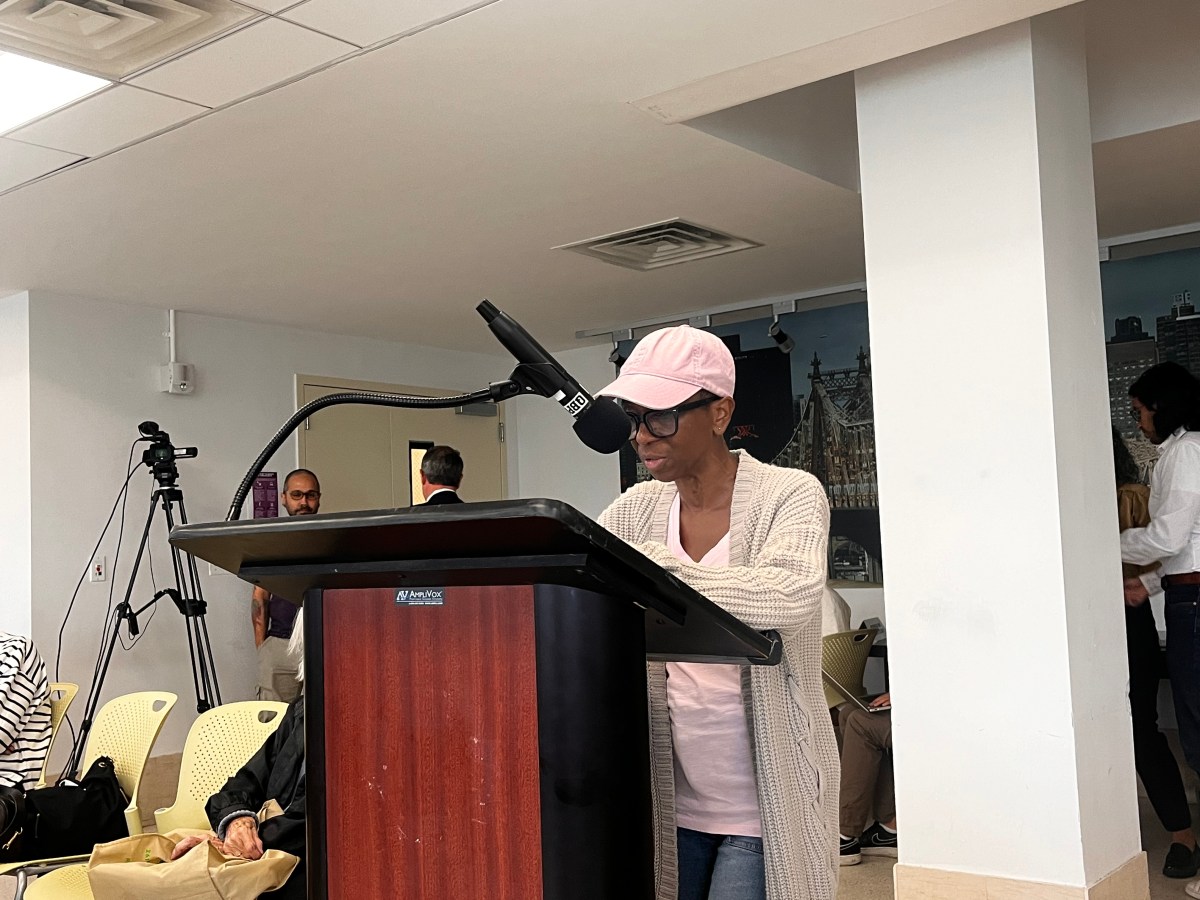
Other residents questioned the environmental impact of the proposal.
Brandon Castro, a candidate for Assembly District 30, believes the strain on resources in his neighborhood could be huge. “My district covers Woodside, Maspeth and Elmhurst. Woodside and Maspeth in particular have been devastated by flooding over the past few years. My entire basement got flooded. I had to manually clean out flooding and, having had that happen twice more, I think this is going to make things worse,” Castro said. “I think the one-size-fits-all approach is wrong,” he said.
“Over the years we’ve seen a significant increase in heavy rainfall events in New York City, leading to widespread flooding and associated challenges coming with it. It’s imperative that any new housing developments built in our neighborhood take into account the increased risk of flooding,” said Roger Gendron, president of the New Hamilton Beach Civic Association.
Some residents questioned how already crowded NYC public schools would absorb new students.
“We have an elephant in the room in regards to the class size law, where five out of seven school districts in Queens have chronic overcrowding and as it is there are not enough seats in the district to accommodate students. Where are these children going to be going to school? Are they going to other boroughs?,” asked Jean Hanh, a Forest Hills homeowner.
Staunch Supporters
Residents in support of the rezoning proposal seemed as vocal as the opposition.
Samir Lavingia, campaign coordinator of Open New York, a pro-housing nonprofit, believes the rezoning policy is the answer to the city’s housing shortage crisis. “Evictions have increased, asking rents have skyrocketed and newly issued building permits have plummeted. The City of Yes for Housing Opportunity offers a once-in-a-generation chance to reverse these trends,” Lavingia said. He added that the policy is critical to Queens, bringing more housing opportunities, income-restricted workforce housing and backyard cottages providing critical revenue for homeowners. “The zoning changes will not destroy neighborhoods. They are smart, relatively minor changes and far less dramatic than zoning changes implemented in other states.” he said.
Vishnu Reddy, a Sunnyside resident, said that the rezoning policy will expand beyond a “one size fits all cookie-cutter approach that forces people into narrow housing options.” Reddy added that the proposal will allow Queens residents to support multi-generational family living through ADUs and support local businesses by building apartments on commercial corridors.
Sadiha Rahman spoke in favor of the proposal, saying that the legalization of basement apartments would be a major support to homeowners.
“Basement apartments have long been a source of affordable housing. The city needs to create a pathway to make these units safe and regulated.” she said. “It would create additional affordable housing for low to moderate-income tenants, and it would provide a safety net for aging homeowners.” Rahman works with Chhaya CDC, a housing stability organization for low-income South Asian and Indo-Carribean residents, and the BASE Coalition, which advocates for legislation legalizing ADUs and basement apartments.
Some residents linked their support of the proposal to the “American Dream.”
“The City of Yes is not asking anyone to give up their American Dream. It’s only asking you to share your American dream with a few more people in your neighborhood,” said Daniel Kent. “What destroys our neighborhoods is the housing shortage, which is the root cause of the homelessness crisis and the root cause of the affordability crisis.”

